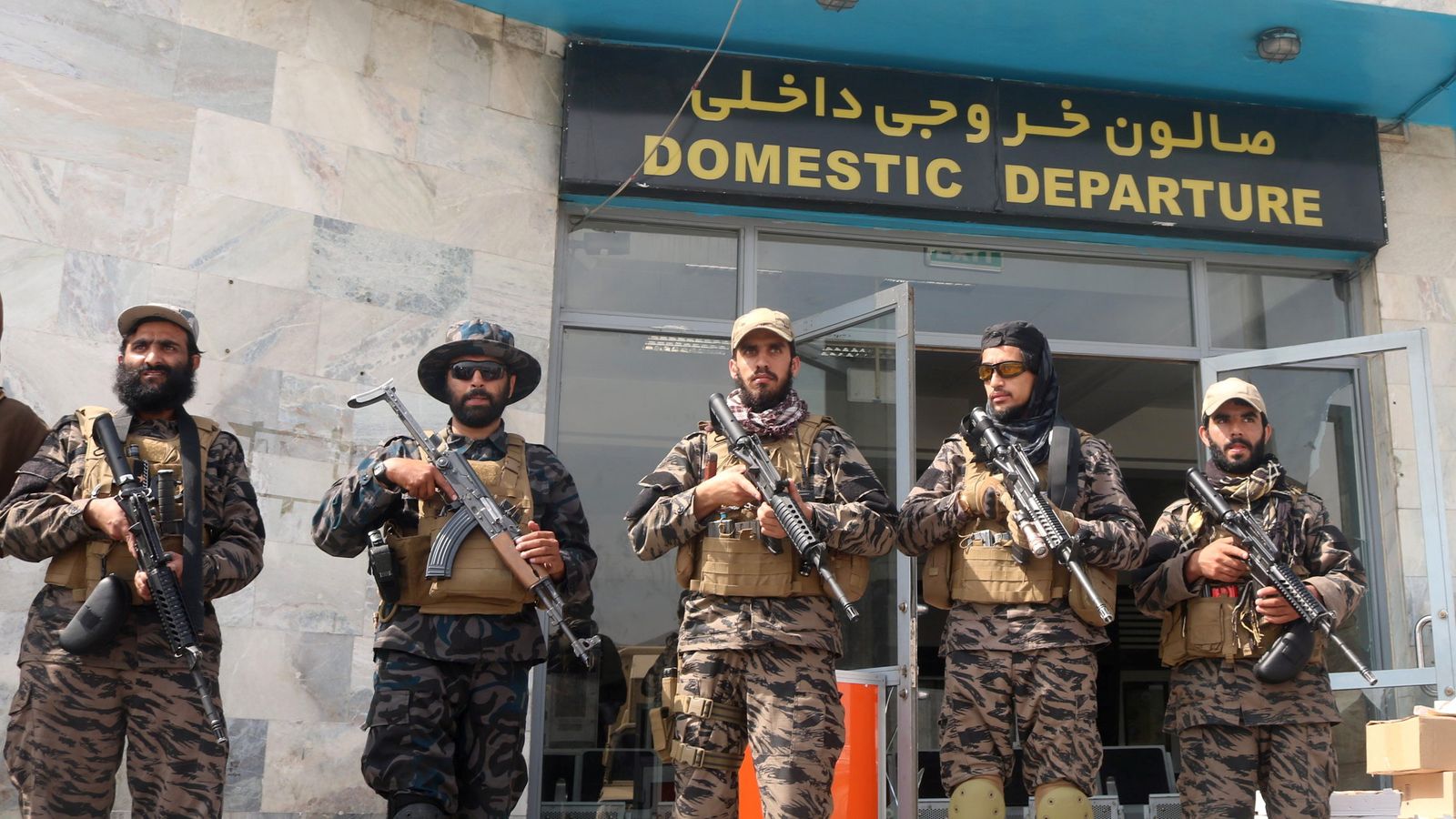The prospect of 2,000 “hardcore” Islamic State fighters in Afghanistan but no Western boots on the ground to combat them will be making a lot of military and security officials nervous.
Al Qaeda, a rival Islamist extremist group, is also gaining in strength.
It poses potentially an even greater challenge because unlike ISIS, which is as much an enemy of the Taliban as it is of the West, al Qaeda has deep roots with Afghanistan’s incoming Taliban rulers, so can expect a less hostile reception in the country.
Please use Chrome browser for a more accessible video player
When the US first agreed with the Taliban last year under then president, Donald Trump, to withdraw all troops, there was always the plan to retain a special forces and intelligence presence in Afghanistan. The same is true for the UK and other Western powers.
But the collapse of the Western-backed Afghan government and takeover by the Taliban last month meant that all previous assumptions were scrapped – and everyone had to leave.
Doubtless, there will still be agents working for the UK, the US and others operating on the ground, but a counter-terrorism network built by allies since they invaded Afghanistan in 2001 to go after al Qaeda – the perpetrators of the September 11 attacks – has itself been severely eroded.
It means their ability to gather intelligence on the activities of Islamic State Khorasan, the name of the ISIS affiliate based in Afghanistan, and al Qaeda, will be diminished and therefore their ability to prevent attacks reduced.
Please use Chrome browser for a more accessible video player
Another challenge is how the failure of the US-led intervention in Afghanistan and its defeat to the Taliban may draw more foreign fighters to join terrorist organisations.
“Those that are motivated to join a cause, typically like to join a cause that is winning,” said Lieutenant Colonel Richard Williams, a former special forces commander. “So the probability of this being a recruiting sergeant as the phrase goes for terrorism is very high.”
The UK and its partners have sophisticated tools to be able to monitor terrorist groups remotely.
They will doubtlessly be relying on cyber capabilities to penetrate communications between suspects in Afghanistan and across the region.
Spy planes and satellites will also be key to provide intelligence.
The fact that the UK and the US had such specific – and accurate – information on the threat of an Islamic State suicide bombing before it took place last Thursday underlines their ability to track the group from a distance.
The US then launched a drone strike on Friday night in eastern Afghanistan against what officials described as a senior ISIS “planner”.
It carried out a second strike in Kabul on Sunday, this time against what commanders alleged was an ISIS vehicle carrying explosives, that were intended to be used against US forces involved in a massive evacuation effort from Kabul airport.
But that airstrike, while destroying the target, also reportedly killed 10 people from the same family, including seven children. The US military said it was looking into the reports of civilian casualties, but this case illustrates the risk of trying to tackle a terrorist threat at a distance.
It also shows the limitations of any strategy that aims to combat terrorist activity simply by launching targeted strikes.
That kind of model fails to deal with the root causes of terrorism – which often flourishes in the security vacuum found in failing and failed states.
Follow the Daily podcast on Apple Podcasts, Google Podcasts, Spotify, Spreaker
Then again, an attempt by the West to rebuild Afghanistan from the failed days of Taliban rule in the late 1990s up until 2001 – as part of efforts to prevent the country from again becoming a haven for terrorism – ended up in the last few weeks’ chaotic retreat.
So for now, the short-term fix of cyber hacks, drone strikes at a distance and – when the threat is particularly severe – special forces raids looks set to be the most likely method of trying to prevent new terrorist threats emanating from Afghanistan.
The UK and its allies will be hoping that will be sufficient to contain the threat.






















